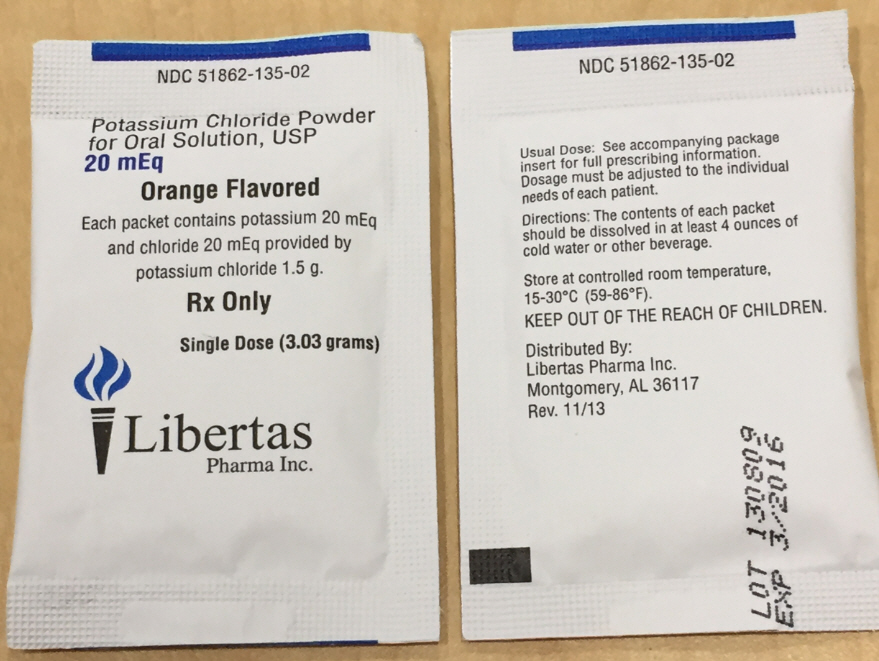Potassium Chloride Powder while Breastfeeding

What is Potassium Chloride Powder used for?
I am breastfeeding mother and I am using Potassium Chloride Powder. Can it have any bad effect on my kid? Shall I search for better alternative?

Nursing Mothers Many drugs are excreted in human milk and because of the potential for serious adverse reactions in nursing infants from oral potassium supplements, a decision should be made whether to discontinue nursing or discontinue the drug, taking into account the importance of the drug to the mother.
Potassium Chloride Powder Breastfeeding Analsys
Potassium cation while Breastfeeding
SafeCAS Number: 7447-40-7
Human milk has a potassium concentration of 13 meq/L, almost a half of rehydration solution content and a quarter of maximal IV recommended dose. Potassium supplementation does not alter milk concentration without increasing mother’s serum concentration, which is strictly limited from 3,5 to 5,5 meq/L.
I am nursing mother and I have already used Potassium Chloride Powder, what should I do?
Potassium Chloride Powder is safe in breastfeeding and should not create any health problem for your baby but in case you feel any health issue associated with Potassium Chloride Powder you should contact your doctor or health care provider. Be it pregnancy or lactation you shall keep your doctor informed.
I am nursing mother and my doctor has suggested me to use Potassium Chloride Powder, is it safe?
Definitely, Potassium Chloride Powder is safe in lactation for baby. No wonder your doctor has recommended it.
If I am using Potassium Chloride Powder, will my baby need extra monitoring?
No extra baby monitoring required while mother is using Potassium Chloride Powder
Who can I talk to if I have questions about usage of Potassium Chloride Powder in breastfeeding?
US
National Womens Health and Breastfeeding Helpline: 800-994-9662 (TDD 888-220-5446) 9 a.m. and 6 p.m. ET, Monday through Friday
UK
National Breastfeeding Helpline: 0300-100-0212 9.30am to 9.30pm, daily
Association of Breastfeeding Mothers: 0300-330-5453
La Leche League: 0345-120-2918
The Breastfeeding Network supporter line in Bengali and Sylheti: 0300-456-2421
National Childbirth Trust (NCT): 0300-330-0700
Australia
National Breastfeeding Helpline: 1800-686-268 24 hours a day, 7 days a week
Canada
Telehealth Ontario for breastfeeding: 1-866-797-0000 24 hours a day, 7 days a week
